|
A biweekly newsletter from the Anthroposophical Society in America
 |
|
December 19, 2020
Dear Members & Friends,
Are you OK? A few weeks ago Meghan, Duchess of Sussex, wrote about the power of that simple question. Are you OK? No, I just miscarried my child. No, I just lost my place to stay. No, my family is hungry, and our school is closed again. No, my father just died in the hospital where he cleaned the floors.
As I wrote last spring, we are, as students of “spiritual science,” preparing the next age, said Rudolf Steiner, when it will not be possible for civilized people to walk past another’s suffering. So Duchess Meghan asked her driver, should we stop? Will that woman be OK? It’s New York, he told her; someone will stop.
So, are you OK? If not, we hope someone is stopping for you.
The “holy nights” are always a chance to lay ourselves open to the cosmos. As noted last time, our program team is offering a daily seed (except 12/31), a half hour at 12 noon Eastern, 9am Pacific, which will be recorded. It’s free, donations welcomed, but you must register, today or tomorrow (Monday, 12/21). Then follow the Zoom registration link included in your confirmation email. Each day offers a meditative time with the new zodiac image and the virtue of the day, an artistic/writing prompt, and a short sharing related to the Divine Feminine.
Just as Michaelmas in late September coincides roughly with the start of a new cultural-educational season, the holy nights include the most important days for funding non-profit cultural and service organizations. “Courage for the Future” is the thought behind our end-of-year appeal, and we are grateful for the very generous support you have been sending.
We said that our photos would move southwest. We start in the northeast, however, which got a lot of snow. This first picture is a pre-snow December schoolyard in NYC, followed by coastal New England snow and a look inside a wood stove.
|
|
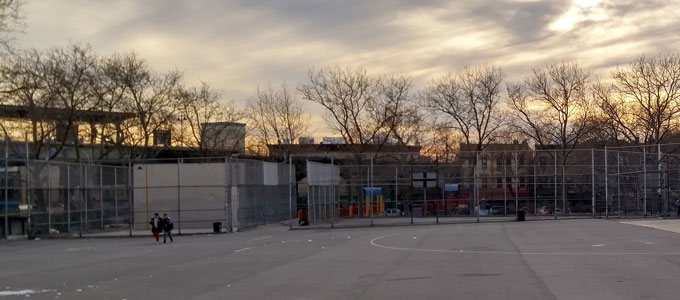 |
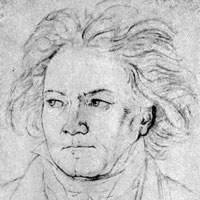 |
| There will be more to say about celebrating Beethoven and his 250th birthday—about him and the special power of music in our next print edition. Back in 1970 the British journal The Golden Blade, edited by Adam Bittleston, celebrated Beethoven and mentioned “a remarkable study by the late Dr Eugen Kolisko in his Reincarnation and Other Essays, a small volume published in 1940. Kolisko shows how various connections between Beethoven and the legendary figure of Prometheus (who may have had a real progenitor) can be traced: chained to the rock of his deafness and suffering from a chronic liver ailment, Beethoven laid hold of the heavenly fire of the sun and brought it down to earth. Kolisko adds: ‘I was deeply impressed when, some time ago, I heard from a very well-known musician that, in a personal conversation he had with Rudolf Steiner, the latter said: “Beethoven is Prometheus.”’” — A reader and fine violinist Emmanuel Vukovich (FB page) sent us thoughts on music; here is a a taste of Beethoven’s Violin Concerto where he plays the solo. |
|
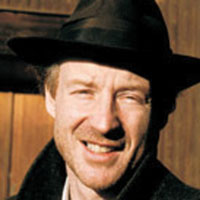 |
| The Chicago Rudolf Steiner Branch has offered an unusual group of programs recently, with more coming. A highlight is a Zoom presentation by Prof. Peter Selg, MD, on “the need of our time, and the Christ-impulse in the Epoch of Ahriman.” (December 30, Wednesday, 1:00-3:00 PM CT USA, 7:00 PM UK, 8:00 PM CET) Dr. Selg is a leader of the General Anthroposophical Section at the Goetheanum, author of many books including a multi-volume biography of Rudolf Steiner, and director of the Ita Wegman Institute. He teaches at the Alanus University for Arts and Social Sciences near Bonn and at the University of Witten-Herdecke (both in Germany), and gives public lectures. — Other Chicago Zoom events coming up include talks by Daniel Hafner, Andrew Linnell, Stephen Usher, Ross Rentea, Craig Wiggins, holy nights programs, and an Epiphany event for Joan of Arc (Jan 6th, her birthday). |
|
|
|
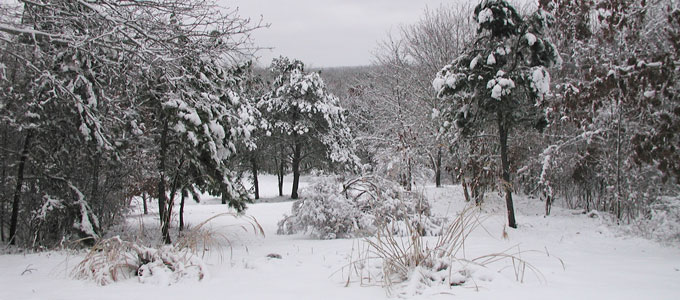 |
|
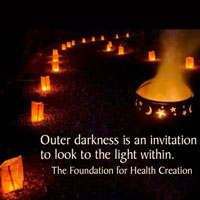
|
| The new outreach program of Anthroposophic Medicine in our region has a timely focus on public health. You can read the current newsletter of the Foundation for Health Creation—“an integrative approach to building a healthier world. ... Through education and outreach, we strive to improve health care and advance public health initiatives directed at creating and maintaining health rather than simply preventing disease.” The FHC newsletter for Autumn 2020 asks “what is health” and “what is health creation”? It includes a poem by Lisel Mueller, “Monet Refuses the Operation.” And it links to four articles, “The Last Cricket” by Steve Edwards, originally published in Orion Magazine; “Creating Healthy Communities One Person at a Time” by Dr. Steven Johnson; “Staying Healthy at the End of 2020” by Dr. Daciana Iancu; and “What is Health Creation?” by Amanda Jacobs. There are other valuable links and a chance to subscribe. — Of related interest is a webinar, “Supporting Child (and Adult) Anxiety in an Unpredictable Time” with Adam Blanning, MD, president of the Anthroposophic Health Association. |
|
|
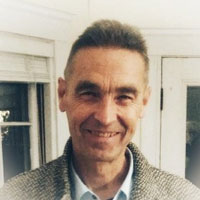
|
| This Oct 22nd article by Otto Scharmer of MIT, Theory U, and the Presencing Institute goes under the motto, “We believe it’s possible to create results that serve the wellbeing of all.” If you experience any partisan political elements here, know that we do not endorse anything of that sort. There is, however, an exceptionally clear and acute insight and path of action about our present social challenges. We face Post-Truth, Post-Democracy, and Post-Humanity. To move forward “will take a profound shift in consciousness: from the cycle of absencing amplified by the conditions of doubt and disinformation (closed mind), architectures of separation (closed heart), and the fueling of fear (closed will) to the cycle of presencing, by cultivating the interior conditions of listening with humility (open mind), sensing the social field (open heart), and activating action confidence (open will).” Sharmer calls for “transformation literacy.” “Let the data talk to you. Listen with humility. Build architectures of connection. Sense the system from the edges. Activate action confidence. Sense and actualize the future as it emerges. ... A more traditional way to refer to these capacities and virtues is truth, beauty, and goodness, or, if you want, science, aesthetics, and ethics, respectively.” An extraordinary six-minute video presents the content with admirable clarity. |
|
|
|
|
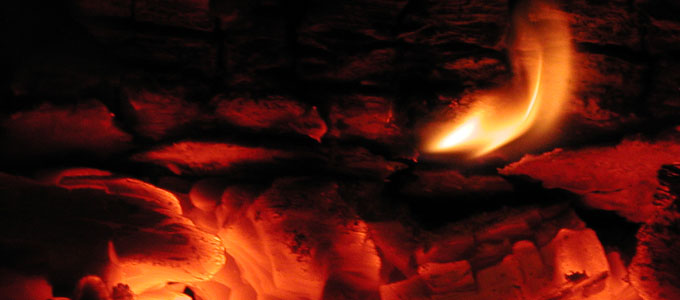 |
|
ESSENTIAL ANTHROPOSOPHY
A very brief reflection this time.
Rudolf Steiner observed that modern culture is destructive, and would collapse without renewal. Where does that renewal come from? From new births of human beings, all of whose deepest intention is to bring love into the world.
So the 37th week of the Calendar of the Soul, as rendered into English by Owen Barfield:
To be a torch to bear the Spirit’s light
into the dark night of a wintry world
blessing and blest my eager heart aspires;
bright shoots of soul
sunk in the ground-bed of the world shall be
and shining from the sensual dark
the Word resound through all Reality.
|
|
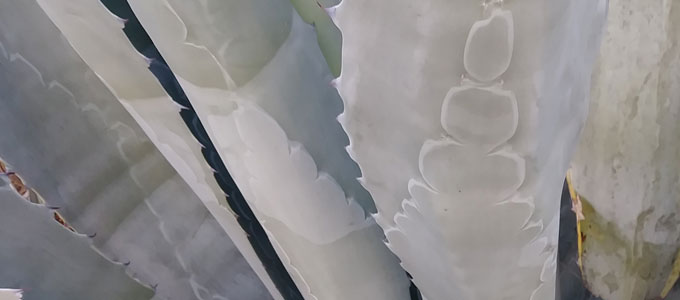 |
|
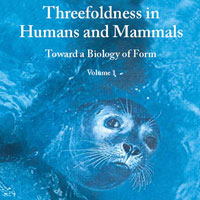
|
| John Barnes’ Adonis Press is publishing a new book tomorrow, 12/21, Wolfgang Schad, Threefoldness in Humans and Mammals: Toward a Biology of Form, translated by Mark Riegner & Catherine E. Creeger. This two-volume hardback comes to 1328 pages, so it is helpful to say the least to have immediately a capable review in PDF by one of our favorite writers, Prof. Frederick Amrine of the University of Michigan. “Wolfgang Schad's splendid, two-volume study Threefoldness in Humans and Mammals; Toward a Biology of Form is actually a greatly expanded second edition of a work (Man and Mammals) dating from 1977. It is a profusely illustrated text, with numerous photographs of animals in the wild. The approach is fundamentally Goethean, in that it focuses first on the phenomena themselves, only gradually moving to conclusions based on arranging the phenomena in such a way that they ‘light up’ and become transparent to their own theory. ... But the approach is also anthroposophical. Following Rudolf Steiner’s threefold division of human nature, Schad seeks to find the same basic threefold division within the biology of mammals: animals that have principally a nervous and sensory orientation; animals that have a predominantly rhythmical organization; and animals that have a fundamentally metabolic character...” |
|
|
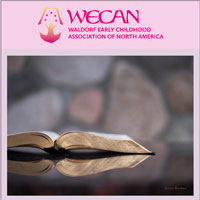
|
| When a notice arrives about books from WECAN (the Waldorf Early Childhood Association of North America) the thought appears that yes, books are still so important for and about this early age. WECAN has been filling this need for 35 years. Currently, along with a 20% off holiday sale, WECAN is highlighting Rokke Rosengren’s Child of Nature, on “children’s curiosity, their natural need for movement, and how to optimize the possibilities for children’s development outdoors.” And Tell Me Another Story, a second collection of stories shared by teachers... Sleep Baby Sleep – lullabies from around the world, book and CD. Susan Perrow’s Therapeutic Storytelling for challenging behavior and difficult situations. There are art posters and CDs. Understanding Child Development: Rudolf Steiner's Essential Principles for Waldorf Education, by Angelika Wiehl and Wolfgang-M. Auer; “Steiner’s selected source texts on early childhood are here collected in English for the first time.” And Five Golden Keys, by Helle Heckmann: “sleep, movement, mealtimes, rhythm, and care: with these five golden keys, Helle Heckman offers a simple and practical approach that addresses the young child’s needs in the best possible way.” Download a full catalog. |
|
|
|
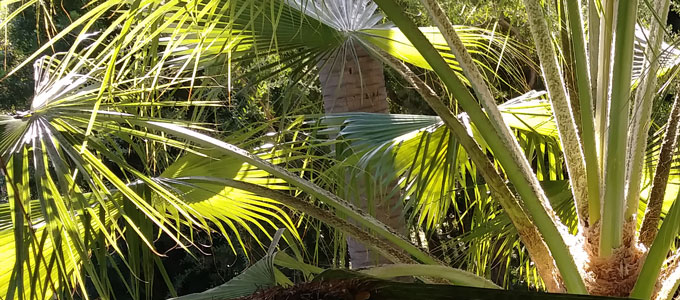 |
|
The photos have taken us now from dim northeastern winter to sunny California, where we may stay a while.
At this busy time of year there is actually much more to mention, so please look at the quick links below.
And one mention which is always encouraging to us: the Portland Branch Site Committee (Mark Hope, Sara Genta, James Knight, Marsha Johnson) is polling friends and members about a home for branch and library; details in their December newsletter.
Thank you for reading, and may we all carry deep insights and feelings from 2020 into a new year!
John Beck
Editor, being human
editor@anthroposophy.org
Anthroposophical Society in America
|
|
|